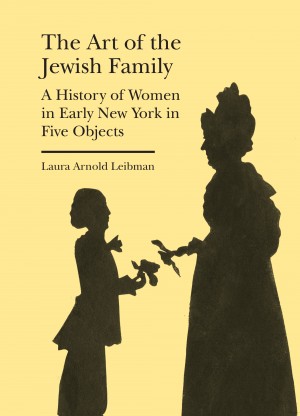In Laura Leibman’s newest history, Once We Were Slaves: The Extraordinary Journey of a Multiracial Jewish Family, the fastidiousness of a wealthy New York-based Jewish woman in her old age serves as a window into the textured history of early American multiracial Jewry and their multivalent status — as white, as Jewish, as those with fiscal and social clout — throughout the Atlantic during America’s early years.
Spurred from a single footnote documenting ancestry in the records of Barbados’s Nidhe Israel synagogue, Once We Were Slaves documents the fascinating life and legacy of a pair of Jewish, biracial siblings, Sarah and Isaac Brandon. The book begins with a pair of objects, as Leibman’s other histories do, found in the family memorabilia of obsessive genealogist and member of one of the most prominent Jewish families since the American Revolution, Blanche Moses. The objects in question are two ivory miniatures depicting Moses’ grandmother, Sarah, and her great-uncle, Isaac. While Moses herself knew little of her paternal grandmother and great-uncle’s lineage and assumed them Sephardic grandees, Leibman locates Moses’ relatives among the slaveowners and enslaved of eighteenth century Barbados’ vast Jewish community.
Once We Were Slaves follows the siblings — children of the wealthy Sephardic Jew, Abraham Rodrigues Brandon, and an African woman, (Sarah) Esther Lopez-Gill (Leibman uses parentheses throughout the book to refer to Lopez-Gill’s first name), who was enslaved by the neighboring Lopez family — from their birth into slavery, to their receival of an inheritance from their paternal grandfather allowing them to buy their freedom, to their conversions to Judaism (including an adult circumcision for Isaac Brandon), and in their journeys across the pond and back again, finding romance, friendship, and esteem among the mainstays of New York and Philadelphia’s Jewish elite.
In her expert unraveling of the Brandon siblings’ ascent from enslavement and discrimination into the economic and social elite of New York and Philadelphia’s mid-nineteenth century Jewish communities, Leibman excavates the intriciate genealogy of a Sephardic Jewish family from Barbados in their romantic trysts, financial triumphs, and complex relationship to the racial and class hierarchy that defined secular and Jewish life in the Caribbean and beyond.
Leibman takes on the role of our guide through some of the muddier bits of Jewish American history — the realities of Jewish slaveowners and their fickle predilections — and the history of discrimination against Jews of color in Jewish communal and religious spaces. The book’s title echoes the tempestuous relationship to power and social standing of Jews both within their own communities and outside of them, highlighting the Brandons’ own experience from the fringes of Jewish society in Suriname to the inner circles of the Metropolitan Jewish world. With a tone that is both frank and intimate, Leibman helms a tale of two multiracial Jews and the communities they lived between and among, bringing to light a long and turbulent legacy of multiracial Jewry in the Americas.
Hannah Kressel is a current fellow at the Pardes Institute of Jewish Studies in Jerusalem. She holds a Masters in Art History from the University of Oxford and a Bachelors in Art History and Studio Art from Brandeis University. Her research examines the intersection of contemporary art, food, and religion. She is an avid baker and cook.



